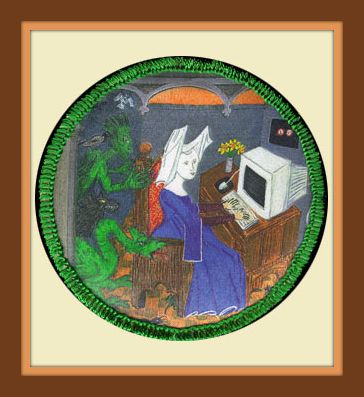I am still on the email list for the previous book group I attended. I love to hear what they're doing and reading. I just got an email about what they will be reading in the next year.
White Guilt: How Blacks and Whites Together Destroyed the Promise of the Civil Rights Era by Shelby Steele; definitely sounds like a great topic
Penelopiad by Margaret Atwood
"Homer’s Odyssey is not the only version of the story. Mythic material was originally oral, and also local -- a myth would be told one way in one place and quite differently in another. I have drawn on material other than the Odyssey, especially for the details of Penelope’s parentage, her early life and marriage, and the scandalous rumors circulating about her. I’ve chosen to give the telling of the story to Penelope and to the twelve hanged maids. The maids form a chanting and singing Chorus, which focuses on two questions that must pose themselves after any close reading of the Odyssey: What led to the hanging of the maids, and what was Penelope really up to? The story as told in the Odyssey doesn’t hold water: there are too many inconsistencies. I’ve always been haunted by the hanged maids and, in The Penelopiad, so is Penelope herself." -- from Margaret Atwood’s Foreword to The Penelopiad
Freakonomics by Steven Leavitt: GREAT book, I read it last May on vacation; lots of fascinating material to discuss
The Sparrow by Mary Doria Russell: I also really liked this book. I suggested it for my book group, but it was an off-the-cuff idea, so I didn't pitch it very well, and they seemed turned off by the idea of it containing sex slavery. But, it would be a great book to discuss in book group.
His Excellency: George Washington by Joseph Ellis: I gave this to AJ for Christmas last year. Haven't read it yet, though.
The Painted Veil by W. Somerset Maughan
From Library Journal
Shallow, poorly educated Kitty marries the passionate and intellectual Walter Fane and has an affair with a career politician, Charles Townsend, assistant colonial secretary of Hong Kong. When Walter discovers the relationship, he compels Kitty to accompany him to a cholera-infested region of mainland China, where she finds limited happiness working with children at a convent. But when Walter dies, she is forced to leave China and return to England. Generally abandoned, she grasps desperately for the affection of her one remaining relative, her long-ignored father. In the end, in sharp, unexamined contrast to her own behavior patterns, she asserts that her unborn daughter will grow up to be an independent woman.
The Backslider by Levi Peterson
Book description: Frank Windham is just a Mormon cowboy—hard-working, trying to be honest, convinced he is going to hell for incurable lust, and convinced that he deserves to. He has an ultra-pious mother, a brother who is more than just a little touched in the head, and a comfortable Lutheran girl friend who knows she has been saved. This is a novel about sin and salvation, written with raunchiness and reverence. It is also an extraordinary landmark in Mormon fiction—the first to consider the tension between guilt and sexual frustration.
Harry Potter and the Deathly Hallows by J.K. Rowling: not sure how this one would play out in a discussion group, but could be fun
The Brief History of the Dead by Kevin Brockmeier
From Publishers Weekly
Starred Review. A deadly virus has spread rapidly across Earth, effectively cutting off wildlife specialist Laura Byrd at her crippled Antarctica research station from the rest of the world. Meanwhile, the planet's dead populate "the city," located on a surreal Earth-like alternate plane, but their afterlives depend on the memories of the living, such as Laura, back on home turf. Forced to cross the frozen tundra, Laura free-associates to keep herself alert; her random memories work to sustain a plethora of people in the city, including her best friend from childhood, a blind man she'd met in the street, her former journalism professor and her parents. Brockmeier (The Truth About Celia) follows all of them with sympathy, from their initial, bewildered arrival in the city to their attempts to construct new lives. He meditates throughout on memory's power and resilience, and gives vivid shape to the city, a place where a giraffe's spots might detach and hover about a street conversation among denizens. He simultaneously keeps the stakes of Laura's struggle high: as she fights for survival, her parents find a second chance for love—but only if Laura can keep them afloat. Other subplots are equally convincing and reflect on relationships in a beautiful, delicate manner; the book seems to say that, in a way, the virus has already arrived. (Feb.)
The Alchemist by Paulo Coehlo: I have this on my shelf, but it's been a long time since I read it. I remember liking it though.
The New Urbanism: Toward an Architecture of Community by Peter Katz
The New Urbanism is a movement that seeks to restore a civil realm to urban planning and a sense of place to our communities. It is a tangible response to the failed Modernist planning that has resulted in unchecked suburban sprawl, slavish dependence on the automobile, and the abandonment and decay of our cities.
Thursday, February 08, 2007
Other book group
Labels:
Book Group,
Off the Stacks
Subscribe to:
Post Comments (Atom)

No comments:
Post a Comment